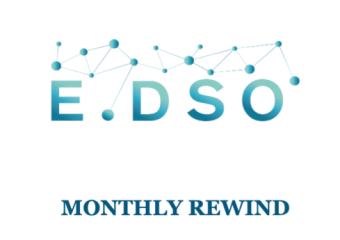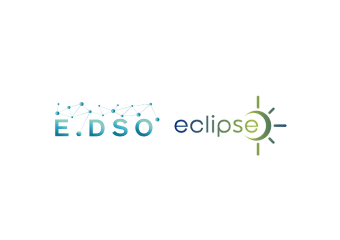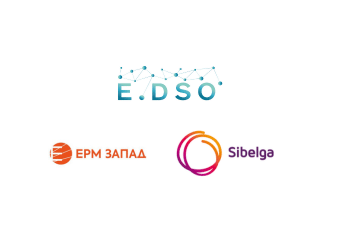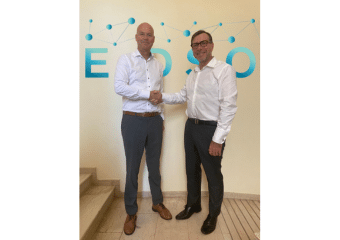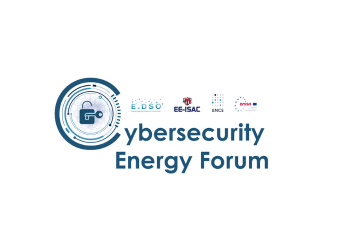E.DSO organises its first open Webinar on COVID-19 and the Role of DSOs in the Green Recovery
The corona virus has a firm grip on Europe and while we are presently looking at it primarily as a public health crisis, it becomes increasingly evident that the economic and societal repercussions are enormous.
Since early March E.DSO already held many periodic calls among all its members to discuss the impact of the COVID-19 crisis on Europe’s DSOs and to exchange best practices. Under the umbrella of E.DSO Stakeholder and Innovation Council, which specifically involves external experts, we now held for the first time an open webinar bridging the DSO community and the wider energy landscape. With more than 230 registrations, the webinar was well attended, with participants coming from a wide range of sectors, public and private entities, research centers, associations and institutions.
Being moderated by Alberto Pototschnig, part-time professor at the Florence School of Regulation and former Director of the Agency for the Cooperation of Energy Regulators (ACER), the webinar included testimonials from several members of our Stakeholder and Innovation Council. The Council, which is chaired by Livio Gallo, Vice-Chairman of E.DSO and Head of Global Infrastructure and Networks at ENEL Group, was established in 2018 to gather distinguished experts with different backgrounds that provide strategic guidance and input to E.DSO.
The different testimonials did not only address DSOs’ current mitigation efforts, but also how the crisis affects consumers, the wider energy system and economy, what the biggest challenges in the aftermath will be, and how DSOs can contribute to a green recovery.
Livio Gallo opened the webinar by stating that “thanks to smart devices and the huge efforts the DSOs have put into digitalization so far, we were able to guarantee continuity of operations and service on Europe’s grids, showing the importance of protecting both our people and our infrastructure, whose robustness, resilience and reliability has to be at the forefront of future investment plans.” He recalled that one of the three topics discussed at the last E.DSO Stakeholder and Innovation Council meeting in November 2019 was ‘Innovative Resilience’, and that the current situation underlines that this is rightfully a priority topic for DSOs and for the Council.
Christian Buchel, Chairman of E.DSO and Director for Territories, Customers and Europe at Enedis, said in his opening remarks that while we were addressing the topic of innovative resilience last November, who would have expected that we will be put to the test so soon. “Together we are much stronger”, he pronounced, referring to the regular video conferences between E.DSO members where best practices are exchanged, and support is offered to the members that request it.
Alberto Pototschnig then introduced the five speakers and presented the results of the first question that was asked during the registration process. He said that like other actors in the energy field, “DSOs are looking at how to transform challenges into opportunities”.
Having recorded 232 responses to both questions, it appears that participants are particularly concerned with how the Green Deal can be transformed into a ‘Green Recovery Package’ that addresses the adverse economic effects in the COVID-19 aftermath. Moreover, something particularly important in the energy sector (and certainly also for system operators) are investment delays that are the consequence of the current lockdown and reduced level of activity. At the same time, people seem to be less concerned with regulation which is not seen as ‘unfit’ or as a major obstacle to the economic recovery.
In the first testimonial, Ronnie Belmans, Full time Professor at KU Leuven and CEO of EnergyVille, presented a “fact check” on Corona, observing lower demand, higher renewable generation, and the impact on the grid and on the electricity prices in Germany, the Netherlands, France and Belgium. The slides can be found here.
The next speaker was Joisa Saraiva, Founder and Director of the Center for Studies in Regulation and Infrastructure, Fundação Getulio Vargas (Brazil), who provided a perspective on South America (incl. policy responses in Argentina, Colombia and Chile) and research from Steve Cicala (University of Chicago) on which part of consumption reduction can really be explained by COVID-19. The slides can be found here.
Mark McGranaghan, Vice President for Innovation at the Electric Power Research Institute (EPRI), gave an update on lessons learned from EPRI webcasts and coordination with members around Covid-19 impacts and plans for recovery, including international mitigation practices in transmission and distributionsuch as backup control centres, facial thermography tools, safety and operational guidance for ultraviolet germicidal irradiation. The slides can be found here.
Leonardo Meeus, Professor at the Vlerick Business School and Florence School of Regulation, put the EU Green Deal into context and shed light on new initiatives such as the Green Recovery Alliance of ENVI Chair Pascal Canfin, but also the question whether COVID-19 fiscal recovery packages accelerate or retard progress on climate change. The slides can be found here.
The final testimonial came from Simona Maschi, Co-founder and Director of the Copenhagen Institute of Interaction Design,who presented a tool they developed at the institute: ‘Life During Covid-19: A Collective Journal of Everyday Experiences’. She took a broader view at how the current situation affects our daily life and how it might change consumer behaviour more definitely. The tool can be found here and the slides here.
Following the testimonials, Alberto Pototschnig initiated the panel and Q&A by briefly discussing the results of the second question asked during registration. Concerning the contribution of DSOs to a speedy economic recovery, investments into digital technologies were viewed as foremost priority, followed by network investments and increased flexibility uptake.
The five speakers added some additional points which they deemed to be important priority areas for DSOs:
Ronnie Belmans mentioned electric mobility for which DSOs could take an enabling role but also confirmed the importance of flexibility which should look beyond batteries and include other vectors such as heat and all sources of flexibility.
Joisa Saraiva recalled the challenges facing emerging economies that need to reconcile green investments with development objectives and fiscal steering implemented during the crisis. DSOs can play a role in deepening digitalisation, including how digital platforms empower consumer choices, but also agreed with Ronnie Belmans that flexibility was of the essence.
Mark McGranaghan prioritised the integration of communities into the system and highlighted their potential to contribute to increased resiliency. This includes storage, efficiency measures and transportation at the local level. He also highlighted the need for TSO/DSO coordination.
Leonardo Meeus said that investments are needed which are positive for the economy and the climate. This includes different clean energy infrastructure investments, of which DSO networks are one part. He also emphasised R&D, where DSOs need to continue to be active. Consideration should be given to the question how we bring R&D together throughout Europe.
Simona Maschi also addressed the community aspect and consumer empowerment. She said that R&D alliances are needed but also education at the local level. It is time to fill the skills gap and invest in jobs and (re-training), particularly in challenging times where higher unemployment rates in certain sectors can be expected.
Manuel Sanchez concluded the webinar, agreeing with the points on consumer empowerment and the Green Deal contributing to an economic and climate-friendly recovery. He also highlighted the importance of DSO/TSO cooperation. Moreover, he finished by referring to a Working Party on Energy meeting last week that addressed the road to recovery which is the consolidated political response of the Member States and should be published soon.
E.DSO will continue its work on the topic and its Stakeholder and Innovation Council will be meeting later this year.

